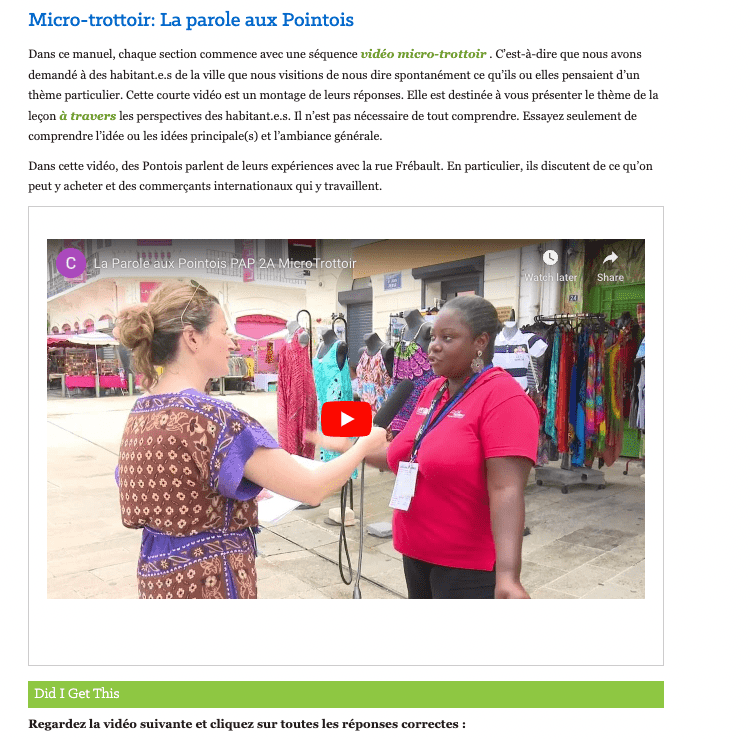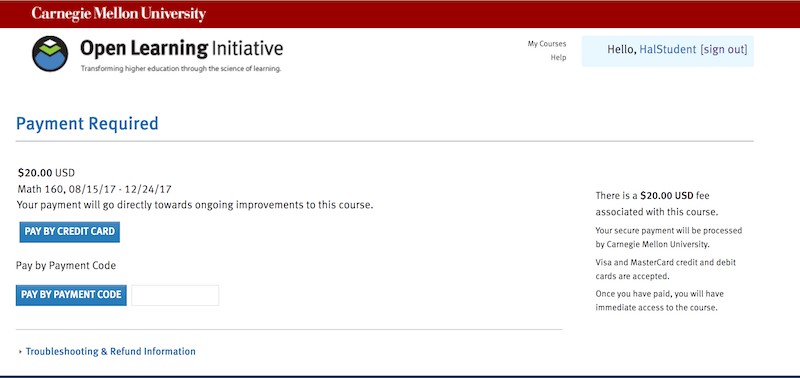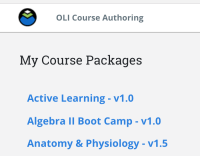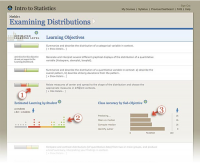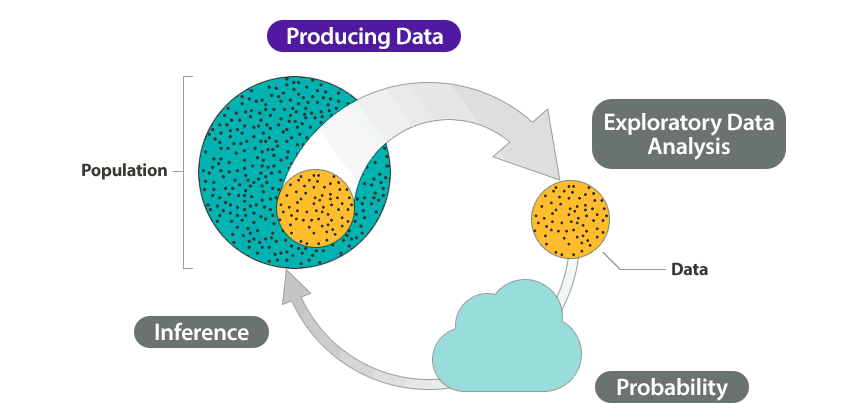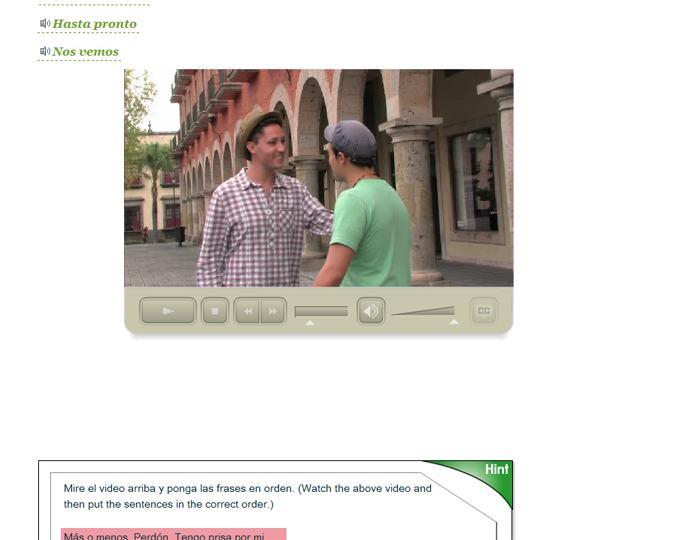Course assessments, activities, and outline
UNIT 1: Introduction
UNIT 2: Pointe-à-Pitre
Module 1: Introduction à Pointe-à-Pitre
Module 2: Esclavage et abolition
Checkpoint: Épreuve linguistique
Project: Poste sur les réseaux sociaux sur l’histoire du nom de la Guadeloupe
Module 3: De colonie à région française
Checkpoint: Épreuve linguistique
Project: Enregistrement oral pour un musée
Module 4: La rue Frébault
Checkpoint: Épreuve linguistique
Project: Histoire digitale: les rues de votre ville
Module 5: Portraits de femmes à Pointe-à-Pitre, littéraires et médias
Checkpoint: Épreuve linguistique
Project: Publicité pour la Journée Internationale de la Femme
Module 6: Le projet de rénovation urbaine
Checkpoint: Épreuve linguistique
Project: Proposition pour les travaux à votre université
Module 7: Le Mémorial ACTe
Checkpoint: Épreuve linguistique
Project: Une exposition pour le Mémorial ACTe
Module 8: La musique à Pointe-à–Pitre
Checkpoint: Épreuve linguistique
Project: Vlog sur un concert
Module 9: La Route du Rhum
Checkpoint: Épreuve linguistique
Project: Vidéo publicitaire pour un événement sportif
Unit 3: Lyon
Module 10: La Capitale des Gaules
Checkpoint: Épreuve linguistique
Project: L’architecture chez vous
Module 11: La Capitale de la Résistance
Checkpoint: Épreuve linguistique
Module 12: Lyon Centre
Checkpoint: Épreuve linguistique
Module 13: La vie en périphérie
Checkpoint: Épreuve linguistique
Project: Rédaction sur la vie en banlieue
Module 14: La Vélorution du Vélo’v
Checkpoint: Épreuve linguistique
Project: Rédaction sur le transport public
Module 15: Un projet controversé: Confluence
Checkpoint: Épreuve linguistique
Project: Rédaction sur la transformation des villes
Module 16: L’art en ville, ville en art
Checkpoint: Épreuve linguistique
Project: Analyse d’une fresque lyonnaise
Module 17: La cuisine lyonnaise
Checkpoint: Épreuve linguistique
Project: Un courriel pour planifier une soirée
Unit 4: Montréal
Module 18: Introduction
Module 19: L’histoire de Montréal
Checkpoint: Épreuve linguistique
Project: Infographie pour l’Immigration Québec
Module 20: Langue et révolution
Checkpoint: Épreuve linguistique
Project: Conversation sur la langue et l’identité
Module 21: Le transport et l’urbanisme
Checkpoint: Épreuve linguistique
Project: Une lettre au gouvernement municipal
Module 22: Montréal linguistique
Checkpoint: Épreuve linguistique
Project: Un paysage linguistique
Module 23: Les quartiers
Checkpoint: Épreuve linguistique
Project: Des conseils pour déménager
Module 24: Manger à Montréal
Checkpoint: Épreuve linguistique
Project: La nourriture et l’identité
Module 25: Le hockey
Checkpoint: Épreuve linguistique
Project: Préparons une soirée de hockey
Module 26: La musique en ville
Checkpoint: Épreuve linguistique
Project: Analyse multimodale d’une chanson québécoise

